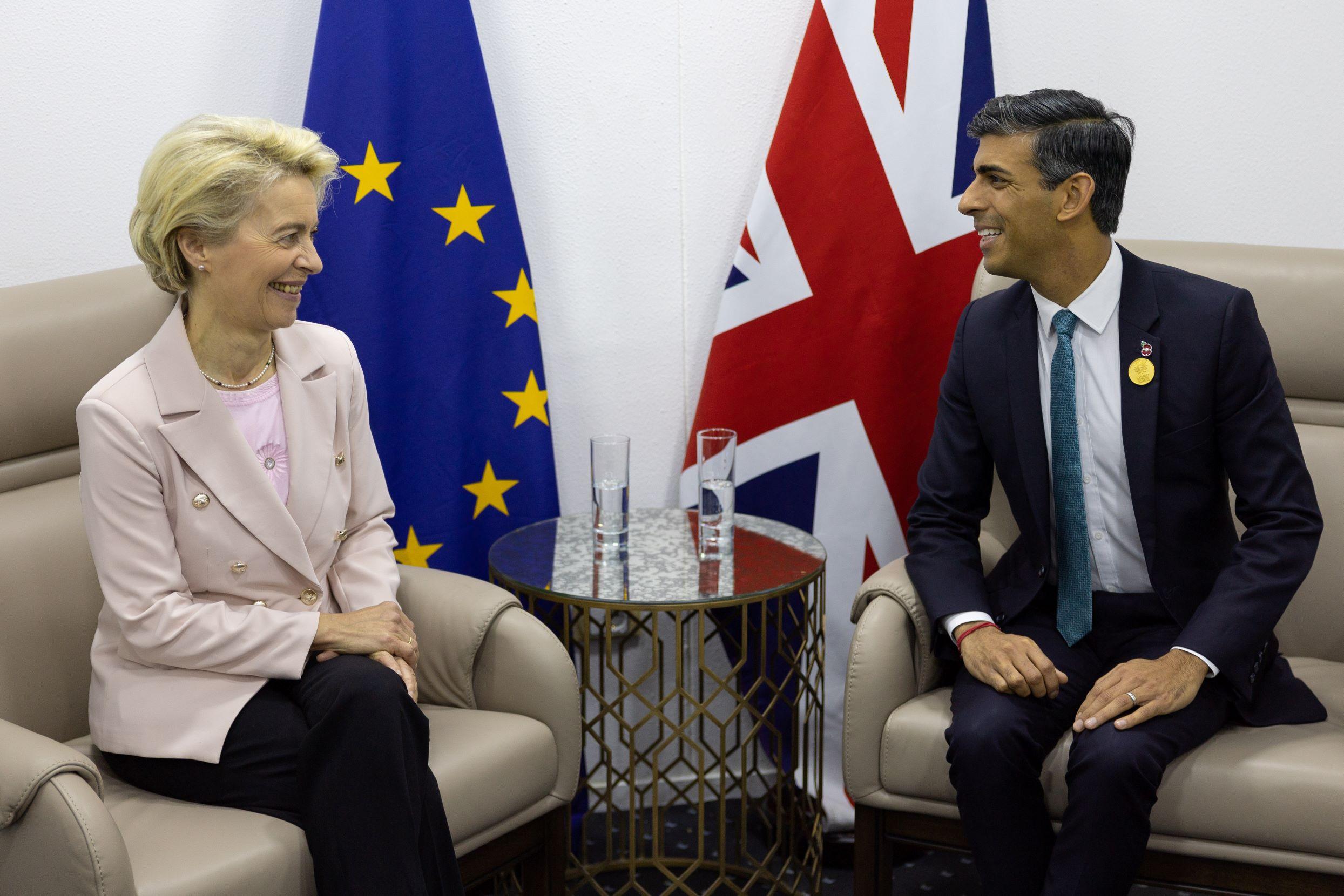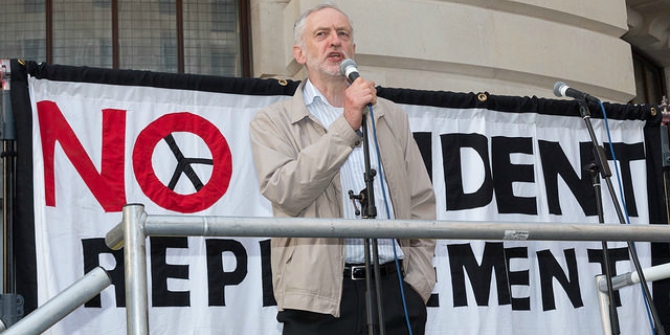 In place of a unifying foreign policy strategy or agenda, the main parties head into the general election with little to differentiate them and with little sense of long-term vision, writes Jonathan Gilmore. The main parties seem united in seeing an expanding horizon for a prosperous, globally influential Britain – a responsible, humane and internationalist power – but one which is also simultaneously resigned to more modest ambitions and the narrowing of its actual capacity.
In place of a unifying foreign policy strategy or agenda, the main parties head into the general election with little to differentiate them and with little sense of long-term vision, writes Jonathan Gilmore. The main parties seem united in seeing an expanding horizon for a prosperous, globally influential Britain – a responsible, humane and internationalist power – but one which is also simultaneously resigned to more modest ambitions and the narrowing of its actual capacity.
Foreign policy is seldom a central issue during UK general elections and the 2015 general election seems little different. Despite the frequent suggestion that the UK ‘punches above its weight’ in the world, discussion of foreign affairs is often the poor relation in party political pronouncements. For most of the recently released party manifestos it is telling that foreign policy typically finds its place in the final chapter.
One reason for this might be the greater immediacy of day-to-day issues such as tax, health, crime and education when compared to broad questions about how Britain should act in the world. However, another reason may be the remarkable degree of similarity between the foreign policy approaches of the main parties. Differences of language and specific emphases aside, the approaches proposed in the run up to the election indicate remarkable continuity, with little sense of there being competing visions of Britain in the world. The main parties seem united in seeing an expanding horizon for a prosperous, globally influential Britain – a responsible, humane and internationalist power – but one which is also simultaneously resigned to more modest ambitions and the narrowing of its actual capacity. The collective vision of future UK foreign policy may be consistent, but it is also a confused one. The foreign policy approaches outlined by the current three main parties suggests that the machinations of post-election coalition building may have little overall effect on the foreign policy direction taken by the new government.
As I have suggested in my recent research, a consistent feature of UK foreign policy since 1997 has been the sense that ethical responsibilities to vulnerable non-citizens matter and should be an influence the way Britain acts in the world. At the same time, the national interest has predictably remained a key concern, with frequent tensions between the two often evident in practice but rarely acknowledged in foreign policy pronouncements. The main parties’ manifesto commitments heading into the 2015 election indicate a continuation of this trend.
The ethical component is strongly evident in the Conservative and Liberal Democrat’s explicit manifesto references to the role of ‘British’ or ‘Liberal’ values at the heart of their foreign policy. Labour’s manifesto is similarly explicit in placing “individual freedom and democracy at the heart of our foreign policy”. In a recent speech, shadow foreign secretary Douglas Alexander characterised Labour’s approach as ‘progressive internationalism’, centred on “a clear framework of progressive values and principles”. In more concrete terms, these ethical responsibilities to vulnerable non-citizens find repeated expression in commitments to human rights, democracy promotion and arms control across the three election manifestos.
The Conservatives refer directly to humanitarian intervention in Libya in 2011 and the UK’s support for Syrian refugees, whilst all three parties highlight commitments to gender equality and maintaining support for the international development budget at 0.7 per cent of GDP. This apparent celebration of human rights and the concern shown for vulnerable non-citizens does seem to sit uneasily with the Conservative’s overt hostility to European human rights legislation, alongside the commitments of both the Conservatives and Labour to limit migration. As has been common with previous iterations of ethically-minded foreign policy, the potential conflicts between ethical regard for non-citizens and other spheres of policy obligation are rarely acknowledged satisfactorily.
At the same time, the tone of the 2015 manifestos also indicates greater uncertainty about the means through which UK power and influence might be expressed in future. For all of the parties, including the SNP, UKIP and the Greens, there are explicit acknowledgements of the need for more restraint, legitimacy and oversight in the use of military force. Avoidance of extensive overseas entanglements features as a unifying theme for all parties. The Conservative and Liberal Democrat manifestos make particular reference to the fuller use of diplomatic and non-military instruments as alternative means of projecting UK influence. The shadow of Iraq, the exceptionally low level of public support for overseas military interventions, and the fallout from the 2013 vote on intervention in Syria now seem to have found more concrete expression in party policy.
Beyond the shadow of Iraq, the turn towards softer expressions of UK power and influence, may also have much to do with the future shape and more limited capability of the British armed forces. The Conservative, Labour, Liberal Democrat, SNP, Green and UKIP manifestos share a commitment to a Strategic Defence and Security Review (SDSR). What remains less clear is the possible outcomes of this process and how this might fill the perceived capacity gaps in the Future Force 2020 plan. The three main parties highlight the need to maintain technologically advanced and expeditionary capable armed forces, but none make an explicit commitment to maintaining the NATO target defence spend of 2 per cent of GDP. Only UKIP favour a substantially increased defence budget – meeting then exceeding the 2 per cent target – though puzzlingly their manifesto marries this with a commitment to step back from expansive internationalist engagements in the future.
Major foreign policy debates of the next parliament are likely to centre on the UK’s future relationship with the EU, the future shape of the armed forces, and whether to replace the UK’s independent nuclear deterrent. Cutbacks in defence spending have likely reduced Britain’s ability to project hard power, but the parties have provided only vague elaboration about alternative strategies for achieving foreign policy objectives. Moreover, the populist challenge to British membership of the EU and the real potential for an in-out referendum, further threatens the channels through which British global influence might be pursued.
Although the 2015 manifestos provide some indication of party positioning on these issues, they remain unable to develop this into a convincing articulation of Britain’s future role in the world and the societal, ideational and material resources with which it might be realised. Labour’s commitment to a formal review of Britain’s place in the world indicates some willingness to engage more fully with these questions if elected. Indeed, there is a sense that Labour wish to challenge the national introversion and isolationist impulse within the British electorate.
It is perhaps the Green Party that comes closest to providing a long-term vision, with their aspirational call for the UK to drive extensive reform of the global economic and security architecture, acting as a “force for international good, respected throughout the global community”. However, their manifesto provides substantially less clarity on how existing political and economic means might be directed towards these ends. As with UKIP, it is also difficult to see the Greens in a position where they might be able to affect this degree of influence on the direction of UK foreign policy.
In place of a unifying strategy or agenda, the main parties head into the general election with little to differentiate them and with little sense of long-term vision. Perhaps at the root of this is a fundamental lack of imagination about what future role Britain could or should play in international affairs. Moreover, little effort has been made during the campaign to engage the electorate with the foreign policy process or to inspire interest in the connections between global politics and the more localised day-to-day issues around which elections are fought.
An underlying sense for all parties is that British foreign policy might be approaching a crossroads in an increasingly uncertain world. However, the foreign policy choices offered for May 7th provide only limited help as a map to navigate the divergent paths.
Note: This article gives the views of the author, and not the position of the British Politics and Policy blog, nor of the London School of Economics. Please read our comments policy before posting.
 Jonathan Gilmore is Senior Lecturer in Politics and International Relations at the Kingston University. He tweets from @DrJohnnyGilmore.
Jonathan Gilmore is Senior Lecturer in Politics and International Relations at the Kingston University. He tweets from @DrJohnnyGilmore.








1 Comments